
President's update
15 Sep 2025
Update
Having recently returned from our annual New Zealand Conference in Dunedin, I remain overcome with emotion and gratitude for the beautiful welcome we received in Ōtepoti. All delegates and I were honoured to witness the beautiful pōwhiri that opened the event and set the tone of kotahitanga (unity) and belonging for the rest of the conference, as we were all wrapped in a protective korowai illuminating the magnificence of indigenous wisdoms and ritual.
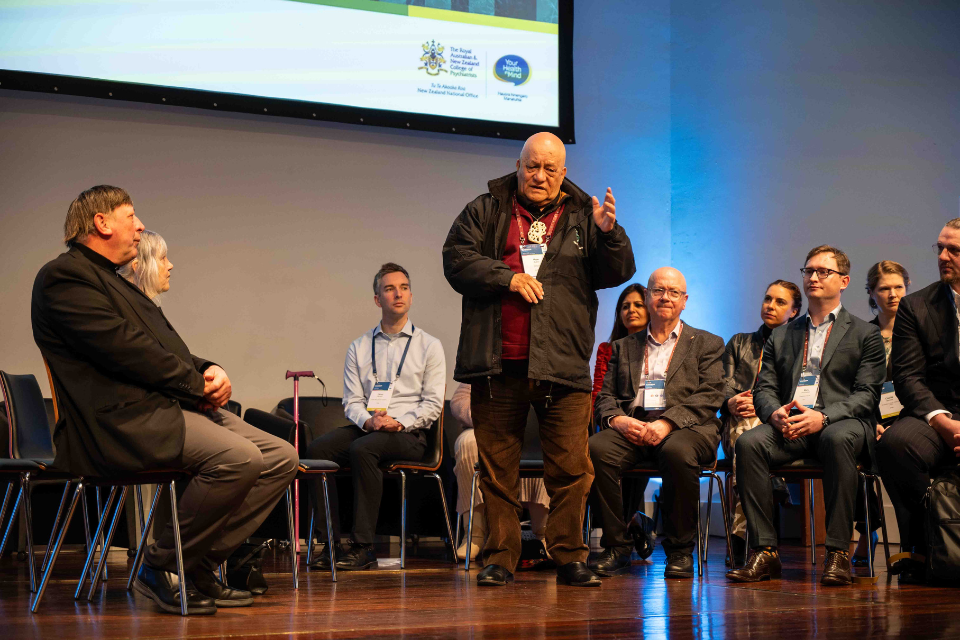
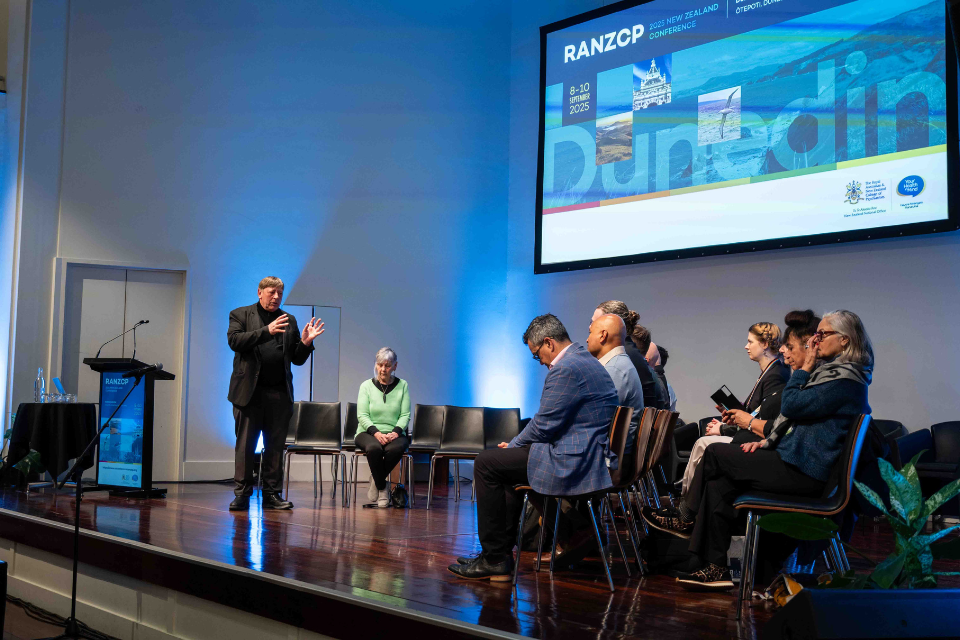
Māori are tāngata whenua and indigenous kaitiaki of Aotearoa. The beauty of te ao Māori I experienced in my time away is humbling. New Zealand is steeped in rich Māori tradition, and it was an honour to experience and be part of it while gathering with our Tū Te Akaaka Roa (New Zealand National Office) colleagues. Guided by our kaumātua, Tū Te Akaaka Roa is doing incredibly noteworthy work to ensure culturally safe mental health practices remain at the forefront in New Zealand.
Throughout the conference, I had many moving discussions with colleagues about how cultural safety isn't just an add-on to mental health practice in Aotearoa. Rather, it's absolutely central to effective mental health care.
Traditional Māori approaches to Hauora (holistic health), offer profound wisdom for contemporary practice. They focus holistically on wellbeing across spiritual, physical, mental and social dimensions rather than simply treating illness or symptoms.
When people can access services that honour their whakapapa, language, and worldview, we see fundamentally better outcomes. This is particularly so for Māori and Pacific communities who have been historically underserved by mainstream mental health systems, and yet continue to contribute so much wisdom about how we understand healing and wellbeing today.
This makes our role as psychiatrists in advocating for the interests of our communities all the more crucial. We must keep speaking up to ensure their safety and knowledge remain at the heart of mental health care.
More recently, our kaumātua, Mr Ron Baker, and kuia, Ms Moe Milne, supported by staff, gave a powerful oral submission on the Pae Ora Amendment Bill highlighting how Māori continue to face systemic failures in health services. Tū Te Akaaka Roa, Te Kaunihera and our kaumātua warn that the bill could further silence doctors from advocating for their patients.
Alongside this, we remain concerned about other recent changes including the Regulatory Standards Bill and decisions around reducing the use of te reo Māori words in school, all of which risk undermining culturally safe mental health practices and Te Tiriti obligations that are fundamental to equitable mental health care.
Advocating against these harmful changes feels all the more important as we mark Te Wiki o te Reo Māori this week, a time when we should be celebrating and strengthening our commitment to the Māori Language Movement instead of diminishing the use of te reo Māori in our institutions.
The Māori Queen, Te Arikinui Ngā Wai hono i te pō, following in her father’s footsteps has called us all to "walk a new path" toward kotahitanga (unity) and rangatiratanga (self-determination) reminding us of the vital importance of nurturing cultural identity and indigenous wisdom in the face of systemic challenges.
But advocacy isn't just about speaking out against harmful policies that affect the current workforce and community. It's also about building the workforce we need to continue delivering culturally safe and high-quality mental health care.
Chair of Tū Te Akaaka Roa, Dr Hiran Thabrew's presentation at the conference highlighted the critical workforce challenges facing psychiatry in Aotearoa and the strategic advocacy work our New Zealand National Office is leading to address them.
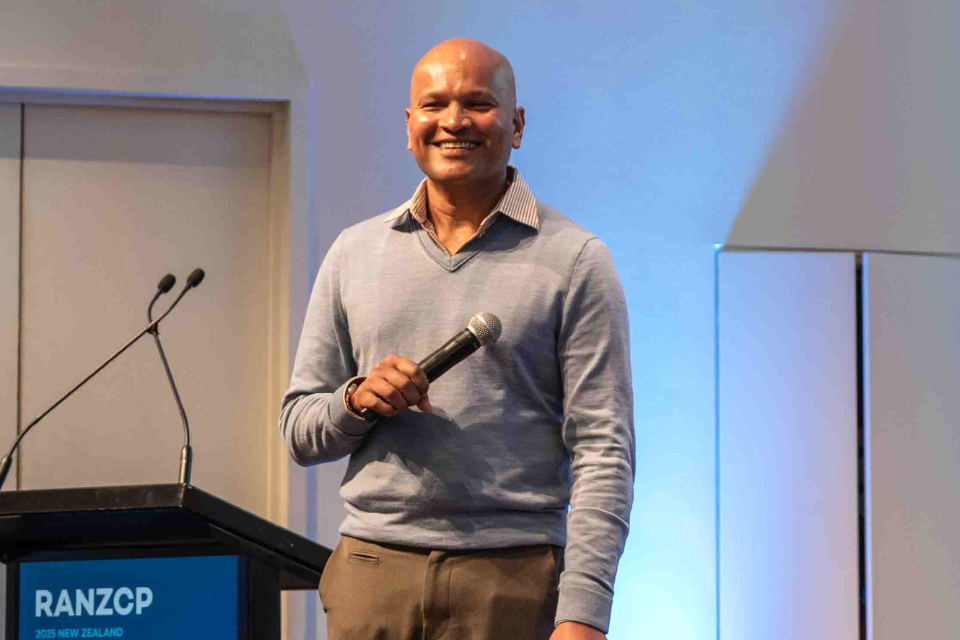
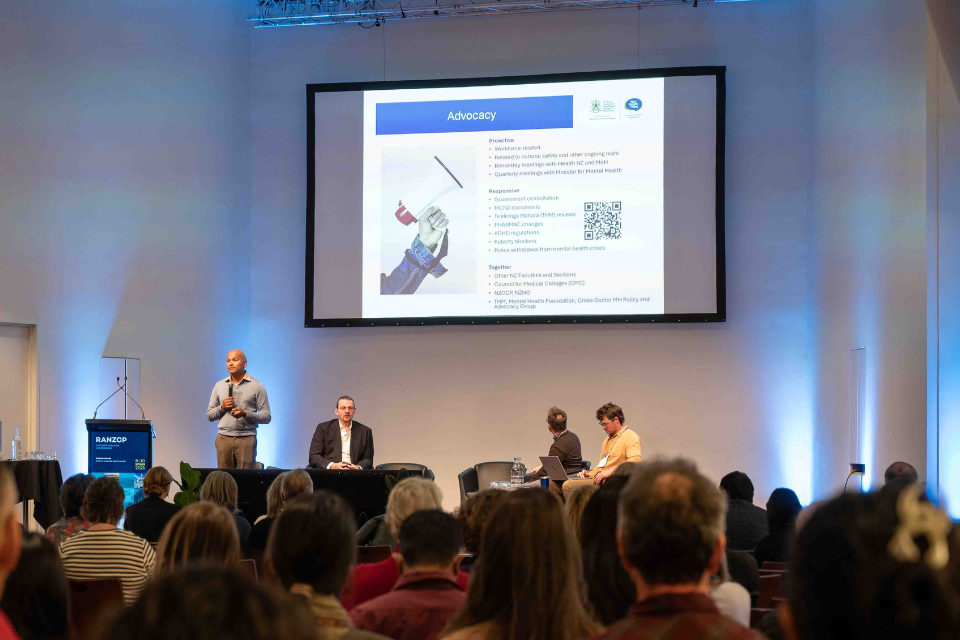
The results speak for themselves: increased funding for new psychiatry trainees from 50 to 54 per year, transition rates from the Psychiatry Interest Forum improving from 50% to 65%, and regular engagement with Health NZ and the Minister for Mental Health and an upcoming hui (meeting) with the Minister of Health. We're not just talking about problems, our colleagues in Aotearoa are helping solve them.
Listening to Dr Thabrew reminded me why I'm so proud to be part of this organisation. The meticulous research, the strategic thinking, the relentless advocacy – it's deeply humbling to witness colleagues pouring their hearts into building a mental health workforce that can genuinely serve our people, especially when the need is so urgent and the challenges so complex.
The conference theme Hei Whakaora Hinengaro, the concept of healing the mind, was embraced with some excellent talks and there were many. Standouts for me included Dr James Le Bas’ deeply personal presentation of a psychiatrist’s journey with lived experience of bipolar disorder and psychosis. It highlighted the lifetime courage it takes to bridge the gap between the struggles of mental illness and the responsibilities of being a psychiatrist. Such conversations are vital in breaking the longstanding taboo among doctors about disclosing our own psychiatric experiences.
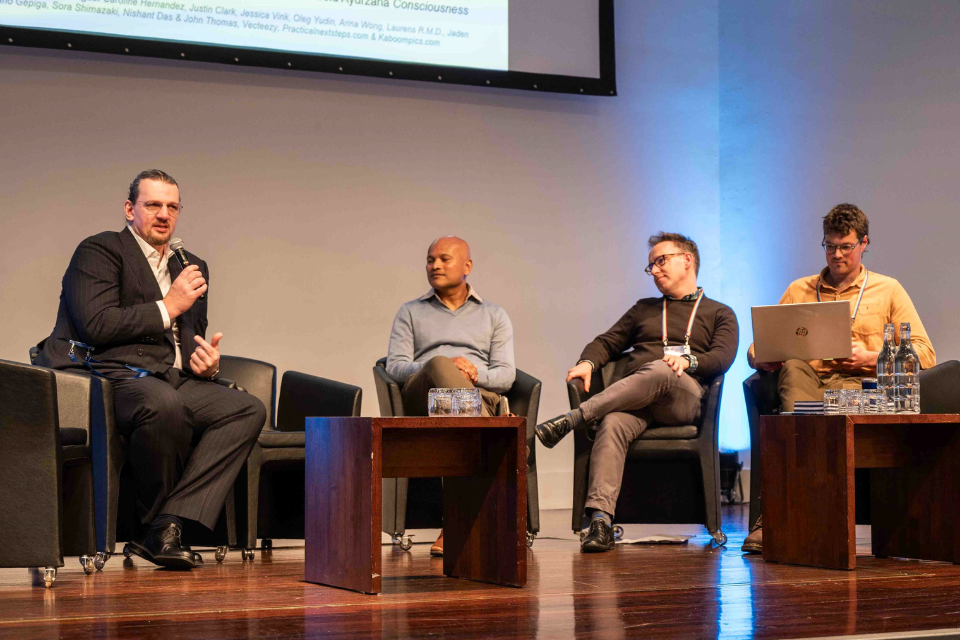
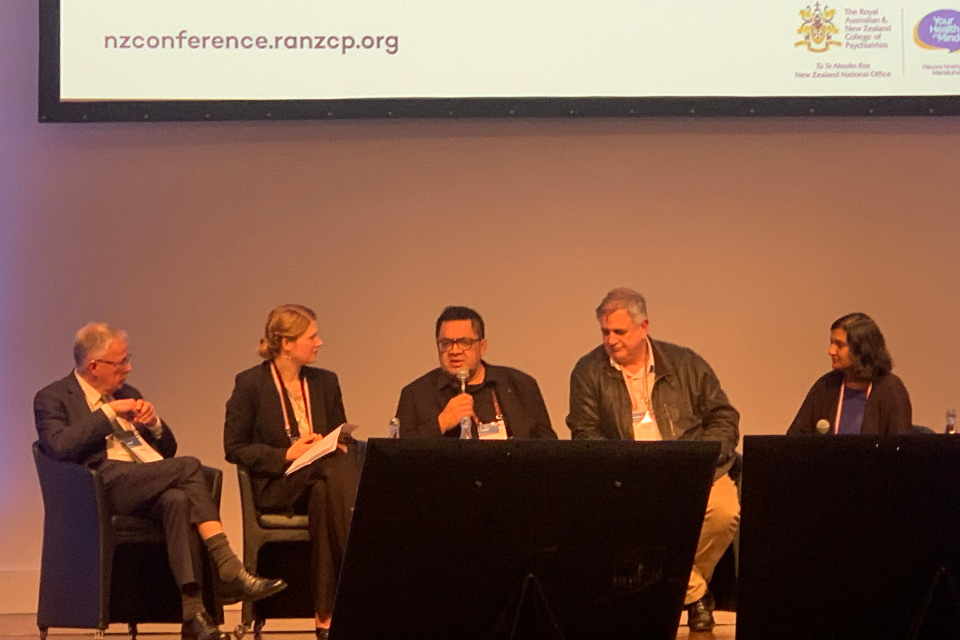
Our kaumātua reminded us it is critical that the person receiving our clinical support feels seen – seen for who they are, their wishes and preferences, and not just for the symptoms or diagnosis they are struggling with. Our greatest strength as psychiatrists lies in listening to those we provide treatment, care and support for, within the broken mental health systems that we work in. Listening, when combined with truly seeing, becomes transformative.
Building on this theme, Professor Traill Dowie’s presentation emphasised autonomy as a clinical necessity in psychiatry. Supporting autonomy means more than respecting choice when things are going well; it also means holding on to the principle even when a person is in the throes of active symptoms that may impair their capacity to decide. In those moments, the clarity of our purpose becomes essential: the treatments we provide are not an end in themselves but a means of restoring the person’s ability to make their own decisions. He spoke about how clinical practice must move beyond treating autonomy as an abstract principle. We must actively foster it through relational practices that validate people’s experiences and help reconstruct coherent self-narratives. This requires creating spaces where individuals can safely express fragmented or contradictory aspects of self, recognising that agency endures, even in its most fragile forms. Perhaps most profoundly, autonomy is nurtured through bearing witness to suffering without reducing the person to their illness and helping hold their own self in view.
The cultural performance from Wairua Pūhou was a reminder how proud our young are of their cultural heritage. Wairua Pūhou was formed in the late 1980s with students from Otago Boys’ and Otago Girls’ High Schools to empower rakatahi to be strong, confident, and successful young Māori. Their guiding mantra is: To be Māori is to be excellent. The rōpū is tutored by Mac and Taina Te Ngahue, alongside Rinaria Hepi.
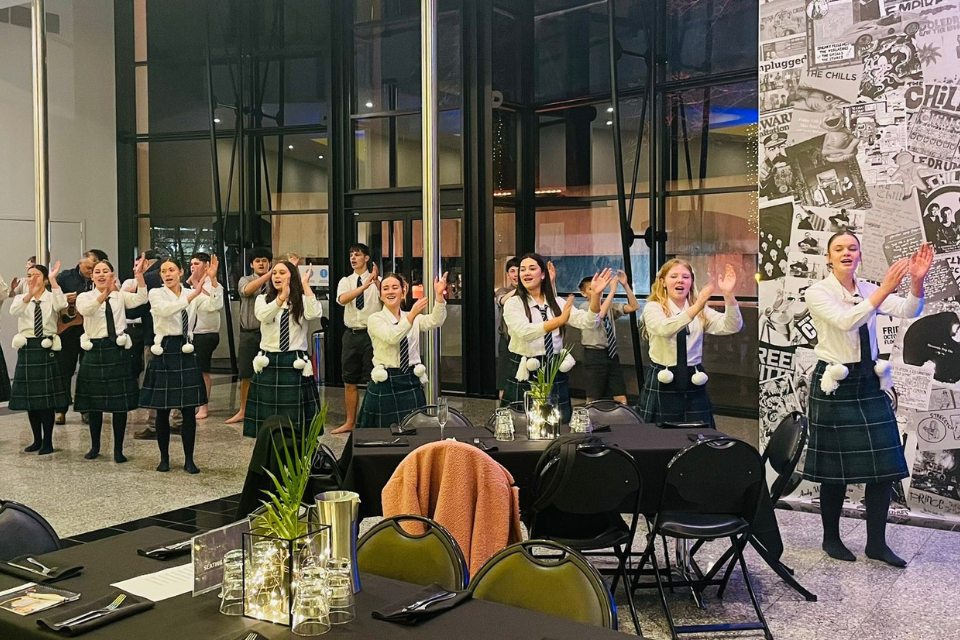
Together, these discussions reminded me that psychiatry at its best is not about doing things to or for people, but about listening and seeing, walking alongside them, honouring their dignity, and supporting their journey with our clinical expertise when they are struggling with mental illness.
As President of the RANZCP, these are the learnings I carry forward: that our profession’s power lies not only in our knowledge and expertise, but in how we listen, see, bear witness, and stand beside those at their most vulnerable.
My sincere thanks to the organising team, Co-Convenors Dr Charlie Mentzel and Dr Oliver Hansby, and staff who worked so hard to put the Ōtepoti conference together. The coordination, the programming, the hospitality, it all made it possible for hundreds of us to come together, learn from each other, and remember why we do this work.
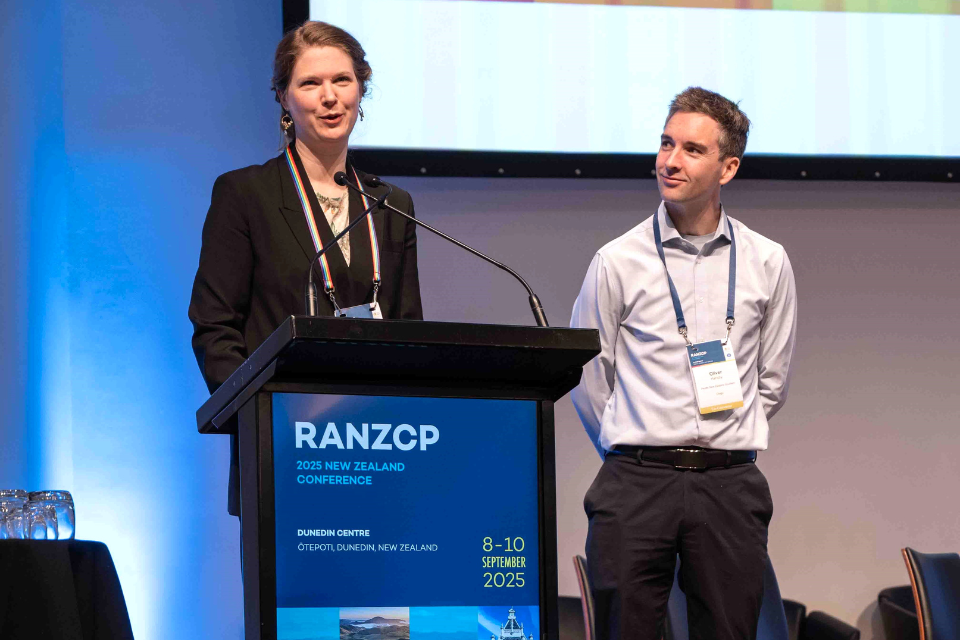
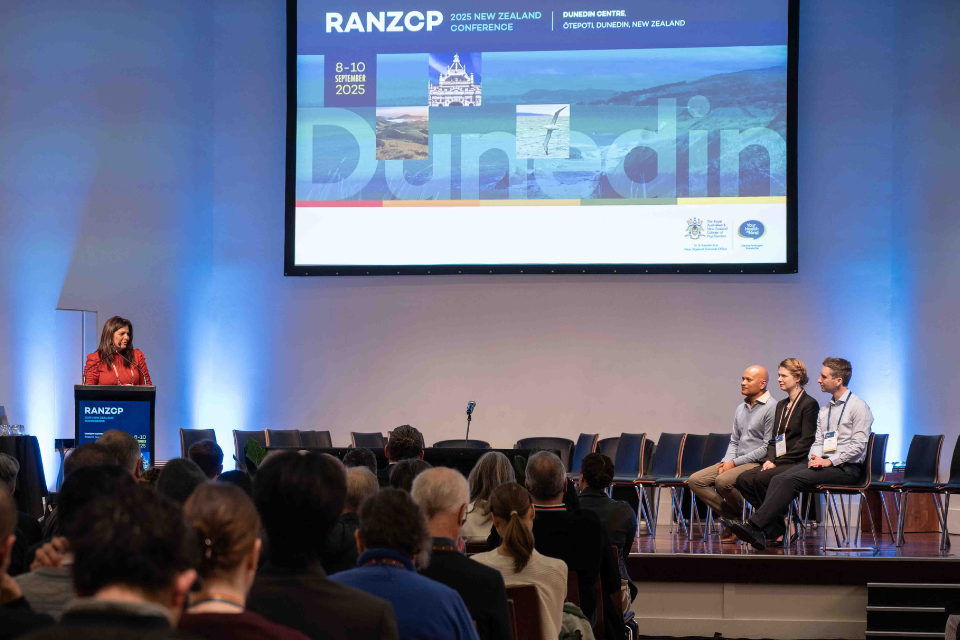
Dr Astha Tomar
President
More news & views
The RANZCP Board has approved a change to membership criteria under which specialist international m...
RANZCP trainees or Fellows who are passionate about training or practising psychiatry in a rural loc...
 14 November 2025
14 November 2025
Leading psychiatrists from across Aotearoa New Zealand and Australia have joined senior public healt...